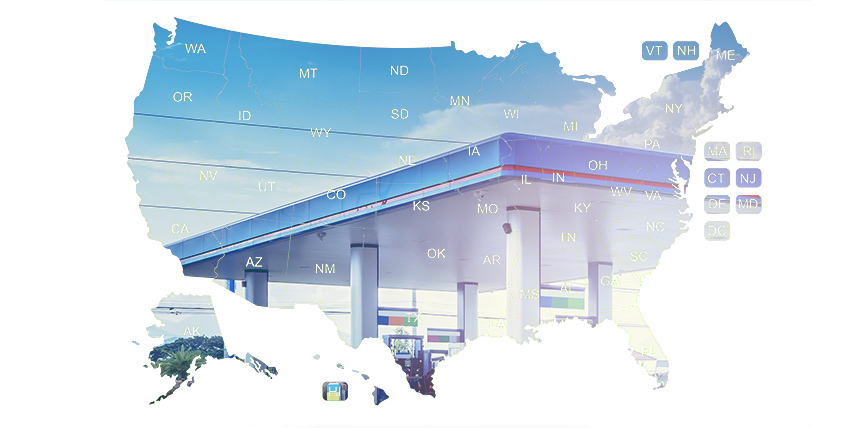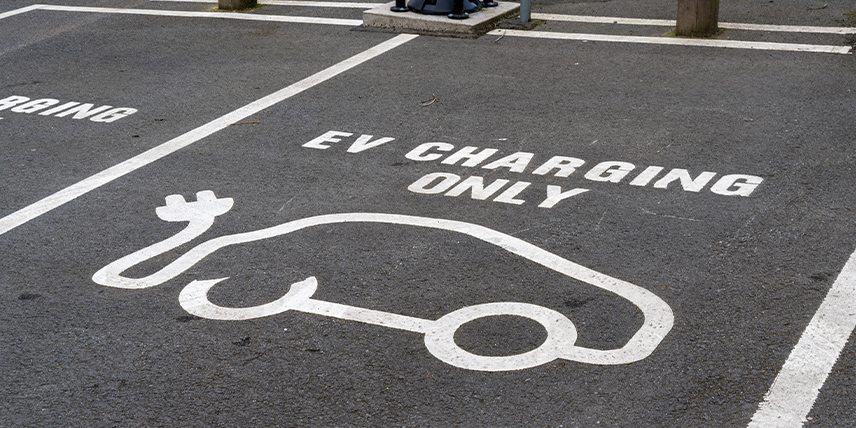Frequently Asked Questions About EV Charging Stations Answered

As the electric vehicle (EV) revolution sweeps across the United States, the third quarter of 2023 marked a pivotal moment in this electrifying journey. With a staggering 63 percent surge in EV sales compared to the same period in 2022, the EV landscape is evolving at an unprecedented pace.
This growth isn’t some statistical anomaly; it’s a testament to the nation’s shift toward sustainable transportation. However, beneath the surface of this EV boom lies a critical challenge—ensuring that the charging infrastructure keeps pace with the rising demand.
While currently, there are approximately 4 million EVs on American roads, there are slightly more than 151,000 publicly available charging outlets, resulting in a ratio of 26 EVs for every public charging port.
This disconnect underscores the pressing need for an extensive charging network to accommodate the growing EV population of vehicles on the road. An estimated 1.1 million more public chargers at L2 or L3 must be installed to meet the National Renewable Energy Laboratory’s infrastructure estimate for 2030.
Fortunately, available funding from federal, state and even local agencies has prompted numerous calls from businesses of all sizes enquiring about BTC POWER chargers and the installation process and timeline. These companies fall into three different tiers, each with its own unique set of questions. Here’s a breakdown of typical questions and how BTC POWER, the leading EV charger manufacturer in the country, can help.
Tier 1—The new explorers in a new land
A Tier 1 buyer is in the earliest possible stage of considering an EV charging station installation. These potential buyers have heard that funding is available and believe an EV charging station could provide long-term profitability or improve customer service at their commercial location. This buyer often enquires about fundamental aspects of EV charging stations, such as installation costs, charging speeds and the timeline for completion.
Typical questions from a Tier 1 buyer:

- What are my choices for an EV charging station? Electric Vehicle (EV) charging stations come in various forms, with the most commonly available public chargers a choice between a Level 2 (L2 or AC charger) or DC fast charger (L3). These offer different charging speeds and serve very different commercial audiences. An L2 EV charger, with its slower charging speeds, is ideal for commercial entities or residential developments when vehicles will have a longer dwell time, such as hotels or motels with visitors attending an event or staying overnight, a medical facility, or a parking garage. The DC fast charger can reach power levels of up to 360 kW for a fast charge in mere minutes. An L3 charger is ideal for high-traffic locations needing quick turnover, such as convenience stores or other grab-and-go retail outlets.
- How can I take advantage of available incentives or grants? Many regions offer incentives and grants to encourage the installation of EV charging stations. We offer a list of some programs, such as an overview of NEVI government funding here. NEVI funding, which stands for National Electric Vehicle Infrastructure (NEVI) Formula Program, will provide $5 billion over five years to help states create a network of electric vehicle (EV) charging stations along designated Alternative Fuel Corridors. That is just one of several programs offering funding. Visit our NEVI page for the latest information about new programs that might impact your installation area.
- How long does it take to install an EV charger? The EV charging industry is so young many people are not familiar with the timeline for charger installation. We can provide you with a checklist of essential steps whether you are considering a Level 2 or a DC Fast Charger. The timeframe to get an installation in the ground could range anywhere from six weeks to six months.
Tier 2—Refining questions – the serious buyer
A Tier 2 buyer has progressed beyond the initial exploration phase and is actively contemplating the installation of an EV charging station. This buyer conducted preliminary research and may have already explored funding opportunities. This buyer is asking EV charging station manufacturers refining questions, focusing on factors such as network connectivity and compatibility with their existing infrastructure, among other factors. This type of buyer is committed to making an informed choice and is keen to understand how an EV charging station might fit seamlessly into the overall strategy.
- What is the total cost of ownership? Beyond the initial purchase price, consider ongoing costs such as electricity, maintenance and any service plans. BTC offers multiple options for service plans. Discuss available options with your sales representative.
- What distinguishes the charging stations available from BTC from other EV charger manufacturers? BTC offers many innovative, distinguishing features on its charging stations. Consider the advanced features on our DC fast chargers, such as dynamic power sharing, liquid-cooled cables and advanced touch screens. In addition, our customer service reputation, reliability and domestic manufacturing help complete the picture of the factors that attract our customer base.
- How does dynamic power sharing work, and why is it beneficial?Dynamic power sharing allows multiple EVs to charge simultaneously while optimizing power distribution. Power distribution balances the energy between the two charging ports for a faster charge for all vehicles. This feature is advantageous in locations with high customer turnover, such as convenience stores, gas stations and highway rest areas.
- Can you explain the importance of liquid-cooled cables? The 500A liquid-cooled cables can accommodate upcoming advancements in EV technology. In an industry that witnesses significant changes every month or even every week, this helps ensure compatibility and allows adaptability and optimal performance for years to come.

Tier 3—Making the switch
A Tier 3 customer already has experience with an EV charging station installed on their property. This buyer is looking for a new provider because they have become dissatisfied with their current supplier or commercial EV charger manufacturer. When these buyers call, they express specific pain points such as subpar customer service or limited functionality in their existing setup.
This type of buyer is trying to replace their current provider and looking for compelling reasons to make the switch. Service reliability plays a pivotal role. These buyers have experienced the frustration of trying to find help from a provider without domestic technicians or one that routes calls through multiple layers before connecting with a knowledgeable team member. This results in low uptime and extended machine downtime, lasting up to six months or more.
- What is the uptime and reliability of BTC charging stations? BTC charging stations are known for their exceptional uptime and reliability. The quality and reputation of BTC and its equipment have led many governmental entities, such as cities and states, to specify BTC for EV charging station bids, recognizing the company as a trusted and dependable resource.
- How does BTC’s service plan compare to competitors? BTC offers a range of service plans, each with different tiers tailored to specific needs. Response times vary based on the chosen tier, ensuring flexibility and prompt support. Additionally, BTC has a network of in-house technicians and trained third-party service providers across North America, serving both the US and Canada, setting it apart from competitors in terms of service quality.
- Is BTC a domestic or overseas entity? BTC takes pride in being one of the few domestically located manufacturers of EV charging stations and equipment. This commitment to domestic manufacturing contributes to our ability to provide highly engineered, innovative and reliable products that can help meet the need to install public charging stations for the EV infrastructure for a greener future.
Contact our dedicated team today to join the movement and explore how BTC can support your EV charging needs, whether you’re a Tier 1 explorer, a Tier 2 serious buyer, or a Tier 3 switcher. Let’s work together to build a sustainable and electrifying future for all.




